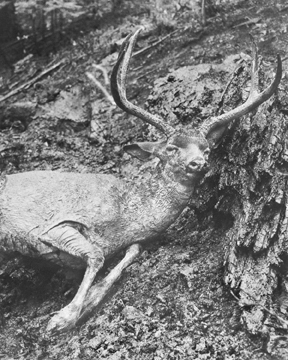Playwright
The Arts and Politics Project: A Triptych
A collaborative project between artists and scholars that asks, “What is, or ought to be, the relationship between aesthetics and politics?” It is a set of three experimental plays on music, dance, and art that engages three canonical works of art (by Beethoven, Wilde, and Picasso) to illuminate our time.
Dance, Salome! Dance!
A collaboration with choreographer Kevin Iega Jeff and director Lou Bellamy. A play about race, patronage, and what is right in ballet and the arts.
Act I, Scene I
The stage is dark. A door opens and a woman switches on the lights. A dance room: spacious; mirrors line one wall; windows—cathedral like, bare—grace another; and a ballet barre. It’s dark outside. Some of the windows are open, and we can just make out the sounds of the city: traffic; distant voices; perhaps the cry of a gull—adding to a feeling of spareness. Mostly we hear the rain.
A tree just beginning to blossom reaches into an open window. The branches have that ethereal, fertile color of springtime brown, made even deeper by the rain’s wetness. The blossoms are drenched, and hang heavily; they quietly drip water onto the floor.
The woman crosses the room to the barre. She is in costume—a white organza bodice with a haze of tulle that suggests the outlines of that paradoxical body: fragile and delicate, yet superbly powerful. Her limbs are long and supple, graceful and muscular: the body of a dancer. There is a vibrancy to her that holds the viewer’s attention. She haunts in the way a work of art demands the intake of breath and disturbs the memory.
She faces the trees and windows, and begins to stretch slowly: plié, rond de jambe, port de bras. A dancer at the barre, invoking a long history of painting and drawing on the theme, and with it, its almost imperceptible hint of sadness or perhaps loss. There is no movement now, but for the slow stretches of the dancer and the slight shudders of the tree.
Late Style or A Double Fugue: Beethoven and the West-Eastern Divan Orchestra
Collaborating with many other artists, including musicians from the West-Eastern Divan Orchestra.
Late Style is an adaptation of Parallels and Paradoxes: Explorations in Music and Society, a book of conversations between Palestinian scholar Edward Said and Israeli conductor Daniel Barenboim. The play interweaves two voices: text and music. It follows the form of a late Beethoven string quartet (Opus 130): six movements, ending with a performance of the Grosse Fuge. Beethoven’s late work is known for its radicality, as “music before its time.” We are working with a string quartet from Barenboim and Said’s West-Eastern Divan Orchestra, as well as with the acclaimed Syrian composer Kinan Azmeh. The play is timely: Barenboim and Said speak about Israel/Palestine, immigration, belonging, the rise of totalitarianism, and the necessity of the arts to find political solutions. Doubly timely as it is Beethoven's 250th birth anniversary in 2020. We approach Beethoven differently, through contradiction and difference.
In Progress
The Archduke
 Susan Jahoda
Susan Jahoda
The play examines the friendship between a black dancer, who is a young civil rights leader, and an older philosopher and violinist. The play is a meditation on Beethoven, the civil rights movement, and Adornian aesthetics.
Act I, Scene I
The beginning:
I went for a walk today. It is still cold outside here, frost on the floor of the woods, the buds not even yet visible. The air was crystalline and I could hear a train, so far in the distance as if it were right there next to me. I walked for hours. I came across a deer, and I ran. I don’t even know if she were the doe or the fawn, I had to turn away…run away, barely able to breathe. She must have startled the night, as she startled me. Petrified. Turned to stone. The gaze of Medusa stopping her dead in her tracks.
Chaconne
A play in three parts, plumbing the depths of creativity and anguish. It is a story of a young pianist in British Ceylon whose only home is western classical music. It charts the contradictions of colonialism: a love for this music’s beauty but a homeland ravaged, unfree.
Sacred Song
A play about Hildegard von Bingen and the creation of sacred music. It is a play about women and creativity. It brings together text and music.
